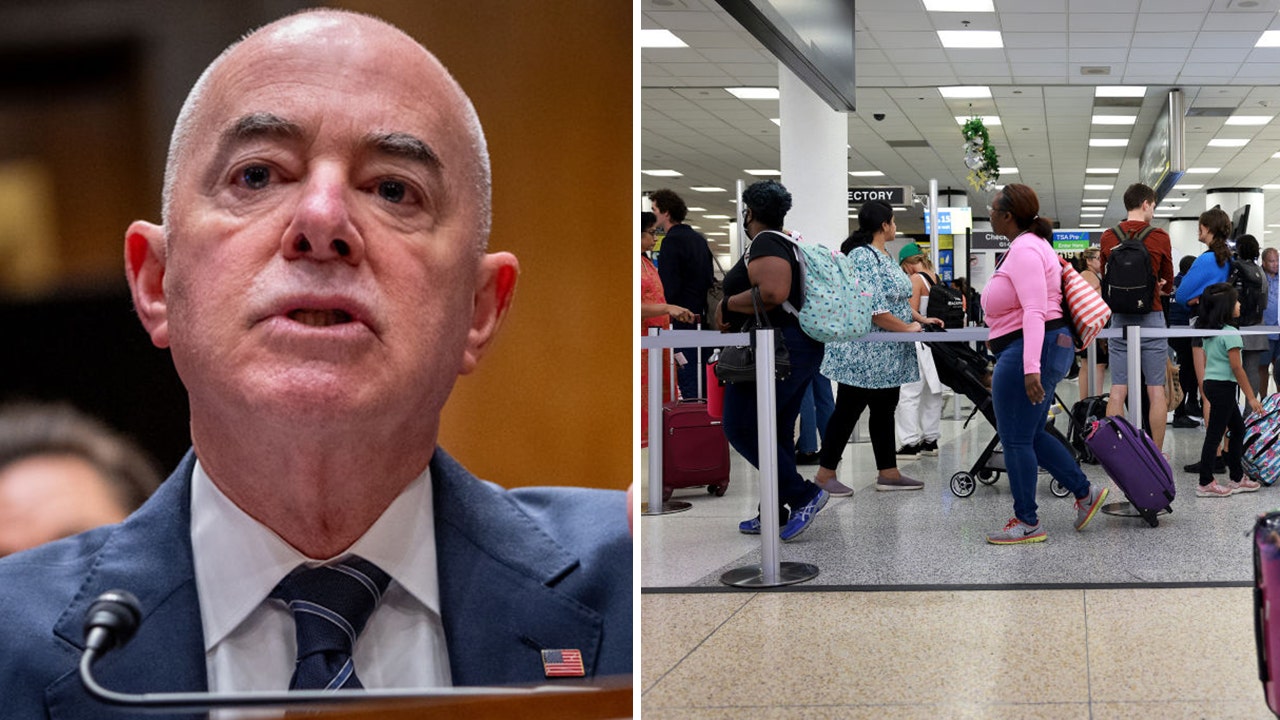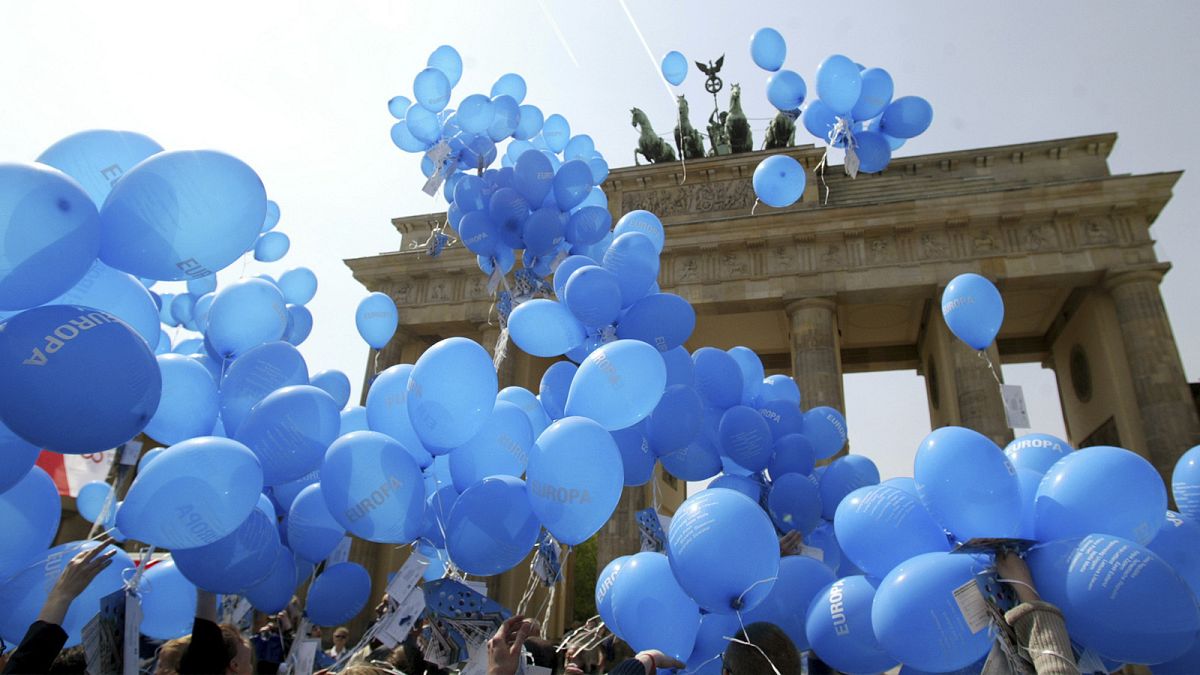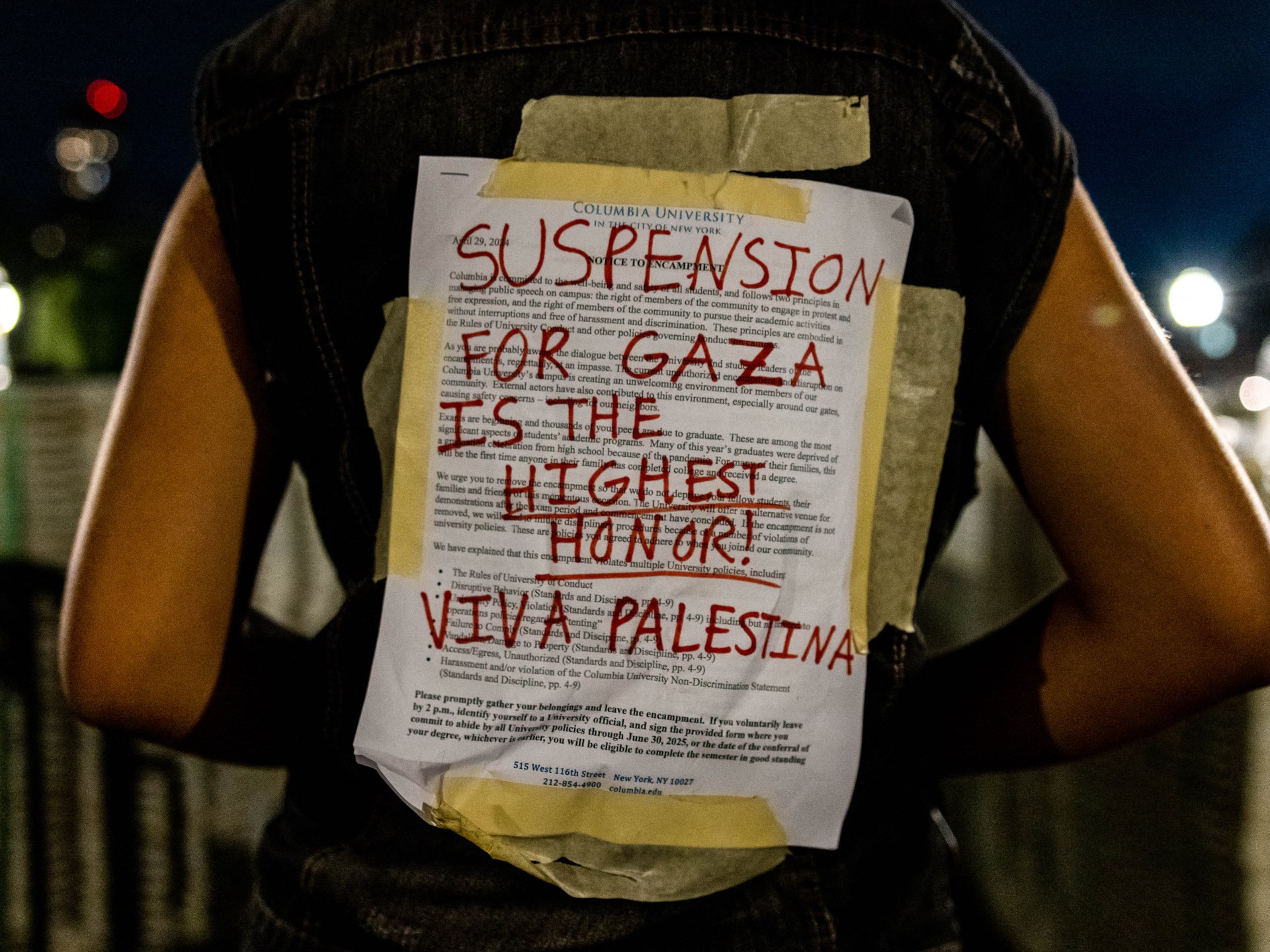Wisconsin
Central’s Mike Ellison signs on to play tennis for University of Wisconsin-Eau Claire

CHEYENNE, Wyo. (Wyoming News Now) – An anchor of the Indians’ boys tennis team has found his new college home, as Mike Ellison will continue with the sport at the University of Wisconsin-Eau Claire.
He was a key part of Central’s success in the 2023 season; Ellison was the Indians’ number one singles player– serving as their leader on the court. He finished fourth overall at the South Regional last season, and ultimately helped Central to a second place finish as a team at the state tournament. As he moves on with his playing career, Eau Claire has some top notch facilities for their tennis players– something Ellison is very excited about utilizing to help further his game.
”It looked bigger than I ever thought. It was the nicest indoor courts I’d ever seen. I thought it was pretty funny, they had a ping pong table up the stairs, they had all kinds of stuff upstairs. They had tournaments every weekend they were doing it which was pretty cool,” Ellison said.
Congratulations to Mike Ellison on furthering his tennis journey.
Copyright 2024 KGWN. All rights reserved.

Wisconsin
Wisconsin’s ‘24 RNC delegation to stay in Milwaukee hotel after originally being slated for Racine digs
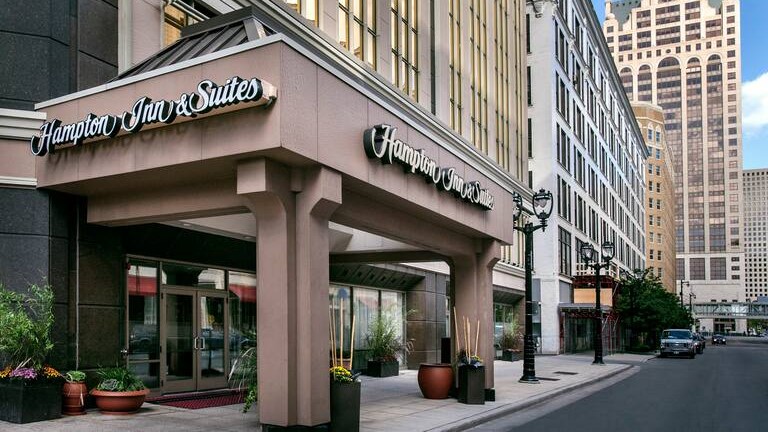
If you’re not willing to pay Pfister prices, you’re not going to get a Pfister-quality hotel.
And that, GOP sources say, is why the Wisconsin delegation to the Republican National Convention almost ended up staying in Racine.
The state party confirmed to WisPolitics that Wisconsin delegates are now slated to stay in the just-reopened Hampton Inn & Suites in downtown Milwaukee for the July 15-18 convention. The party was otherwise mum on how the delegation ended up there.
But multiple GOP sources told WisPolitics the hotel odyssey was a result of what the Wisconsin delegation was willing to pay for its hotel.
According to the sources:
*The RNC assigns hotels to delegations by a price structure. Every delegation is asked what it is willing to pay for its rooms, which are covered by the delegates themselves, and then states are slotted accordingly. None of the top hotels in downtown Milwaukee were going for less than $550 a night, and the Wisconsin delegation’s original price point was well below that.
*There aren’t enough hotels in Milwaukee to host all the delegates, media and others who will be in Milwaukee for the convention, as well as the national committee meetings the week before. That resulted in the RNC slating Wisconsin to stay in Racine before someone objected to the optics of the home-state delegation staying outside the host city.
*The next step was the Hampton Inn, which has faced financial troubles over the past five years. It closed last year and was transferred to its lender last year in lieu of foreclosure, but recently opened again. The Wisconsin delegation will be there for the convention, about six blocks away from the Fiserv Forum.
Follow convention-related news at Convention Corridor.
Political TV
Wisconsin
Driver charged for deadly crash into Milwaukee County bus

MILWAUKEE — A 29-year-old Milwaukee man is now charged for a deadly crash into a county bus.
Prosecutors said Danny Romero was speeding on April 20 before slamming into the side of a bus at 35th and Wisconsin.
His passenger, Michael Captain, 31 was killed. Another passenger in the SUV was critically hurt.
TMJ4 News
7 people on the bus were also treated for injuries.
Investigators said the car was stolen, and Romero never had a valid driver’s license.
The crash at 35th and Wisconsin came just under 48 hours after another Milwaukee Police said another car traveling more than 100 miles per hour on Capitol Drive hit a Milwaukee County Transit bus at North 35th Street. The driver of the car was killed.
Jaime Walls, Michael’s aunt, says he was a father who enjoyed making people laugh.
TMJ4 News

“He had a heart of gold, and he really would give his shirt off of his back for you. I know a lot of people say that, but it was true,” Walls said.
Romero is scheduled to appear in court on May 7 for a preliminary hearing, according to court records. His bond has been set at $100,000.
It’s about time to watch on your time. Stream local news and weather 24/7 by searching for “TMJ4” on your device.
Available for download on Roku, Apple TV, Amazon Fire TV, and more.
Report a typo or error // Submit a news tip
Wisconsin
As encampments sprout on Wisconsin campuses, here’s what to know about student protest rights
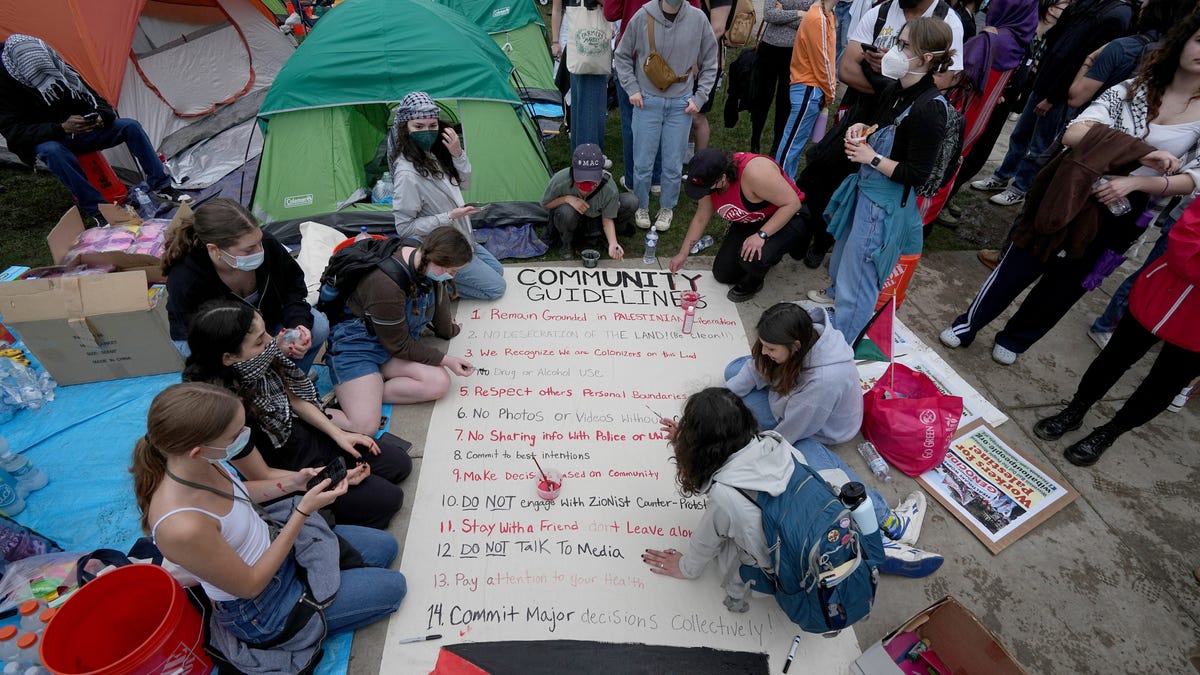
Across the U.S., college students are building “Gaza Solidarity Encampments” to demonstrate support for Palestinians. But as tensions rise, many students have wondered what rights they have to demonstrate on the campuses where they live and pay tuition.
The Pro-Palestinian rallies gained traction earlier this month when student organizers at Columbia University established an encampment on the main lawn. On Monday, University of Wisconsin students in Milwaukee and Madison joined the movement, calling on the university system to divest from companies that support weapons manufacturing and Israel.
The Journal Sentinel spoke to American Civil Liberties Union of Wisconsin staff attorney R. Timothy Muth for insights on the rights of student protesters. Here’s what you need to know:
What are the protection differences between an encampment and a regular protest or march?
When protesters set up an encampment, they often set up tents and sleeping quarters near or within the organization they are protesting.
According to Wisconsin law, no person may picnic or camp on university lands, except in areas specifically designated as picnic or camping grounds. These rules include pitching tents or overnight use of sleeping bags, blankets, makeshift shelters, motor homes, campers or camp trailers on university property.
Additionally, according to Wisconsin law, universities and other government organizations are allowed to place “reasonable time, place and manner restrictions” on speech or protest activity. This means that they can regulate when, where, and how expression takes place, as long as their restrictions are content-neutral, narrowly tailored and provide sufficient alternatives to express ideas.
How do protest rules differ on a public vs. private campus?
The rules and regulations for protest at a public university need to comply with the First Amendment, Muth said, meaning that individuals have the right to assemble and express their views.
However, according to Wisconsin law, private property owners can set rules for speech on their property. A private university could enact a wide variety of restrictions, some of which could be perceived as unreasonable by protesters, because they are granted more flexibility to prohibit some speech and the locations where protesters are permitted to demonstrate.
If a police officer asks for the name of a protester, but is not placing them under arrest, does the protester have to respond?
According to Muth, a person is not required to answer any questions of law enforcement since they have rights under the Fifth Amendment to not speak. If a person is being arrested, they have the right to state that they do not want to answer questions without an attorney present.
However, Muth recommends that student protesters confirm whether or not their campuses have established rules which require them to identify themselves to campus security, as some private institutions might have a rule in place to maximize student safety.
In most cases, like at UW-Madison, campus policies do not supersede state law and protesters have a right to not respond to law enforcement.
Are there rules that govern the behavior of opposing groups at a protest?
Police are permitted to keep antagonistic groups separated, but, according to state law, the groups should be allowed to be within sight and sound of one another. Protesters of opposing groups are allowed to speak to and shout at one another during rallies and demonstrations. According to Muth, a protester cannot be arrested for exhibiting those behaviors.
At a protest, Muth said, “the police are responsible for protecting each group and their expression.”
What types of speech are not protected?
Though almost all speech is protected at a protest, there is an exception for so-called “fighting words” that have the potential to cause harm to an individual or group.
This type of speech is an incendiary, obscene or defamatory statement that aims to incite violent action. This speech is directed at a specific individual or group that create an imminent threat or incite violence.
Protesters should avoid using this language, as it could lead to arrest or removal from the protest premises.
What rules should people be aware of when capturing video recording or photos at a protest?
Generally, the courts state that if a person is in a public space, they do not have any particular expectation of privacy. Therefore, individuals can be photographed or surveilled while walking down a public street, protesting, or partaking in any activities within a public area.
Campus security, the police, and counter-demonstrators are legally allowed to take photos of protesters, according to Muth.
Additionally, he said, “If the police are arresting people or using force, protesters have the First Amendment right to to record and photograph. We generally encourage people not to photograph identifiable pictures of protesters who have not agreed to be photographed.”
Do police officers have the right to view photos and videos captured at an event?
Muth said protesters who want to guarantee that their photos and videos are not accessible to law enforcement should establish a lock or password on their phone before attending a protest.
“Under the Fourth Amendment, it is prohibited for the police to search your phone without a warrant, but that doesn’t mean they won’t look through an unlocked phone,” Muth said.
If protesters are concerned about privacy, Muth said that it is important to evaluate their personal approach to digital security. In addition to locking phones, anything that protesters post publicly to social media can be evaluated by law enforcement following a protest and used as evidence.
Are there any restrictions when it comes to carrying weapons while at a protest?
Wisconsin law allows for the carrying of firearms in a wide variety of settings. However, according to the Wisconsin Administrative Code UWS 18.10(3), individuals are prohibited from “carrying, possessing, or using any dangerous weapon on university lands or in university buildings or facilities, unless it is for law enforcement purposes or the person receives written approval of the chief administrative officer.”
This rule applies to all lands controlled by the Board of Regents of the University of Wisconsin System. At private institutions like Marquette University, many schools prohibit the possession of weapons in campus buildings, offices and residence halls.
What other safety precautions should student protesters should keep in mind?
If protesters think there is a possibility of them getting arrested, Muth said they should memorize a phone number for somebody who can pick them up from the police station or contact a lawyer on their behalf.
If protesters believe their rights have been violated, the ACLU recommends they complete the following steps:
- Write down everything they can remember, including officers’ badge and patrol car numbers and the agency they work for
- Get contact information for witnesses
- Take photographs of all injuries
- File a written complaint with the agency’s internal affairs division or civilian compliant board
Tamia Fowlkes is a Public Investigator reporter for the Milwaukee Journal Sentinel. Contact her at tfowlkes@gannett.com.
-

 Education1 week ago
Education1 week agoVideo: Dozens of Yale Students Arrested as Campus Protests Spread
-

 World1 week ago
World1 week agoEU sanctions extremist Israeli settlers over violence in the West Bank
-

 World1 week ago
World1 week agoShipping firms plead for UN help amid escalating Middle East conflict
-

 Politics1 week ago
Politics1 week ago'Nothing more backwards' than US funding Ukraine border security but not our own, conservatives say
-

 Politics1 week ago
Politics1 week agoDemocrats hold major 2024 advantage as House Republicans face further chaos, division
-

 World1 week ago
World1 week agoPeriod poverty still a problem within the EU despite tax breaks
-

 Politics1 week ago
Politics1 week agoFetterman hammers 'a–hole' anti-Israel protesters, slams own party for response to Iranian attack: 'Crazy'
-
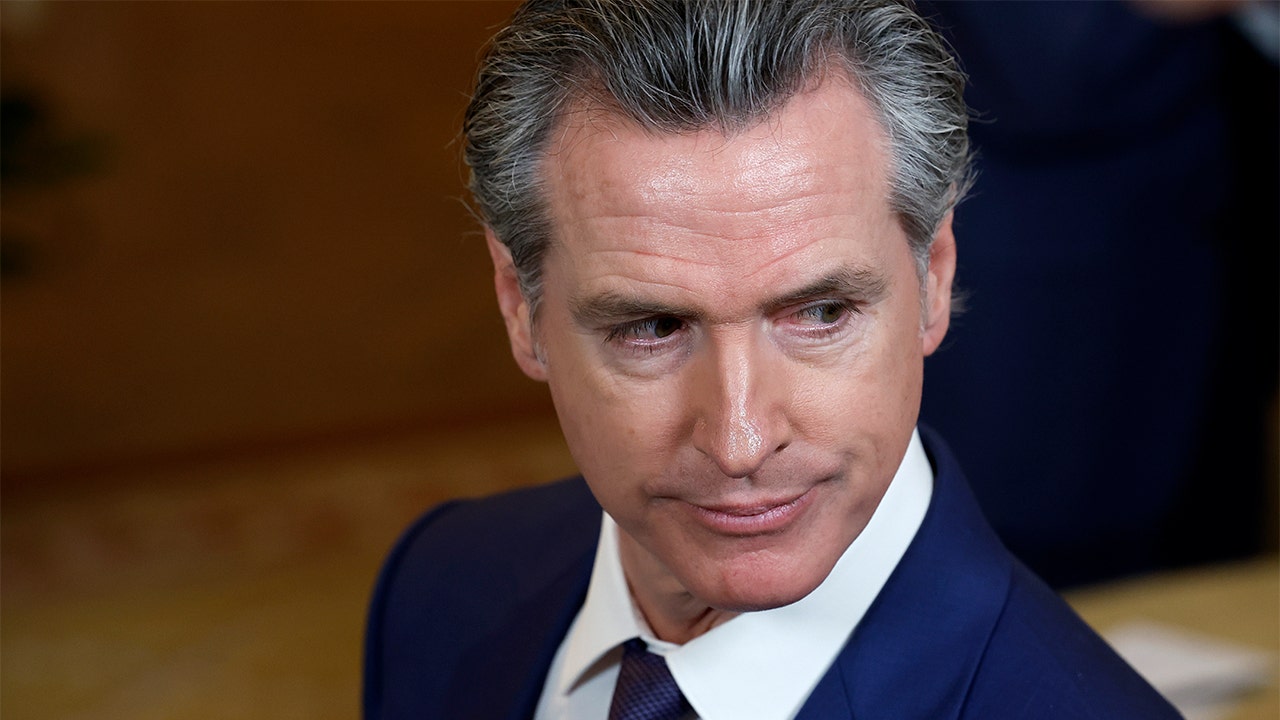
 Politics1 week ago
Politics1 week agoA battle over 100 words: Judge tentatively siding with California AG over students' gender identification











